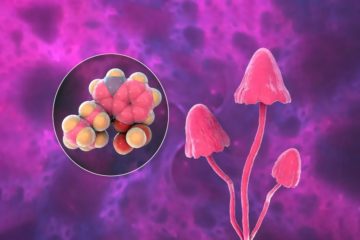Troy Farah in Salon:
 It seems as though “magic” mushrooms containing the psychedelic drug psilocybin are suddenly in vogue, judging by the sudden pop up of shroom dispensaries across North America and the fact that Colorado recently joined Oregon, Connecticut and Maryland in legalizing psychedelic therapy (though no clinics have opened yet) — plus the upward trend in “microdosing” hallucinogens, a new Netflix series, and on and on.
It seems as though “magic” mushrooms containing the psychedelic drug psilocybin are suddenly in vogue, judging by the sudden pop up of shroom dispensaries across North America and the fact that Colorado recently joined Oregon, Connecticut and Maryland in legalizing psychedelic therapy (though no clinics have opened yet) — plus the upward trend in “microdosing” hallucinogens, a new Netflix series, and on and on.
But humans have been consuming these fungi for thousands of years, and some theories suggesting our ancestors even ate them millions of years ago. Ancient humans probably consumed these psychoactive mushrooms for good reason: in some people, psilocybin seems to stir creativity, spiritual connectedness and alleviate mental health pitfalls like depression and anxiety.
The U.S. Food and Drug Administration clearly sees potential in psilocybin. They’ve awarded the drug “Breakthrough Therapy” status for depressive disorders not once, but twice — first for Compass Pathways in 2018 and a second time with Usona Institute in 2019. This label helps the drugs move more quickly through the pharmaceutical approval process, though it doesn’t always equal success. The latest estimate is that psilocybin will become an FDA-approved drug before 2026, but there’s no guarantee this will happen. In the meantime, psilocybin remains highly illegal at the federal level.
More here.
